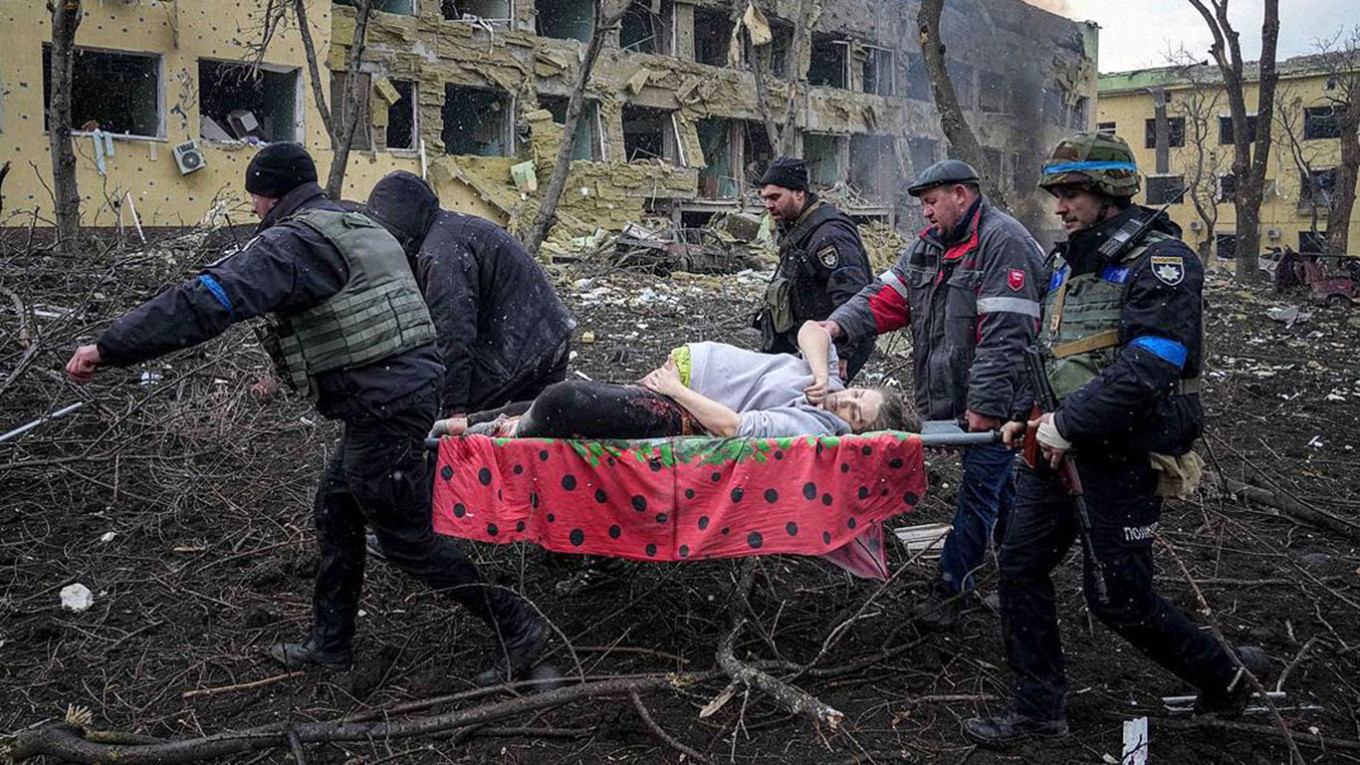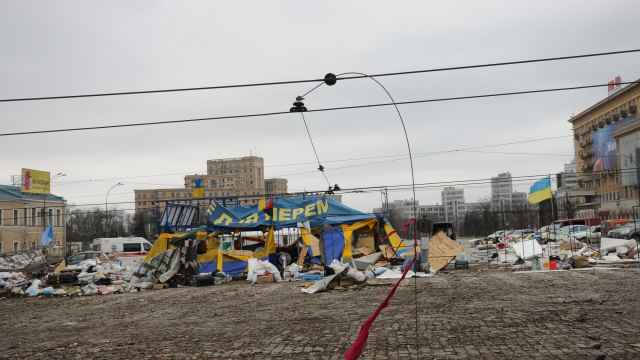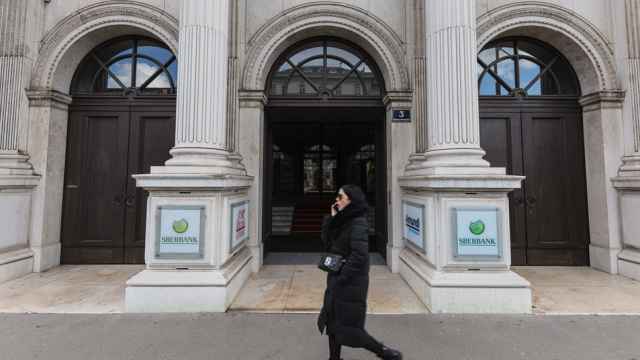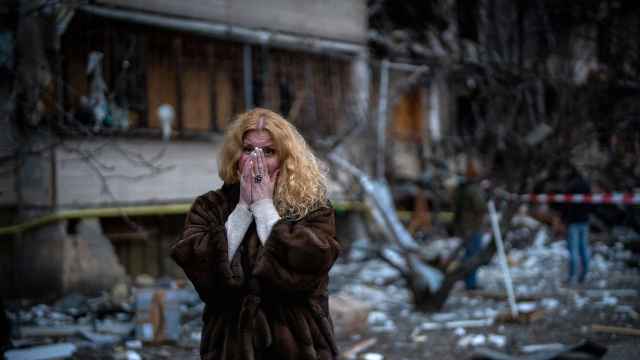A pregnant Ukrainian woman whose evacuation from a Russian-bombed maternity hospital was broadcast around the world has died with her newborn, the Associated Press reported Monday.
The news agency documented the unnamed woman being rushed to an ambulance on a stretcher in the besieged southern city of Mariupol last Wednesday. The images highlighted the horrors of Russia’s invasion of Ukraine, now entering its 19th day, and prompted international condemnation.
Doctors at another Mariupol hospital even closer to the frontline labored to keep the woman, with her pelvis crushed and hip detached, alive. The woman reportedly pleaded with the medics to “kill me now” when she realized she was losing the baby.
The newborn was delivered via cesarean section but showed “no signs of life,” the AP quoted surgeon Timur Marin as saying.
Medics then switched their attention to the mother, where Marin said “more than 30 minutes of resuscitation didn’t produce results.”
“Both died,” Marin said.
Russian officials called the images of evacuations at the Mariupol maternity hospital “fake news,” claiming that Ukrainian extremists had cleared it of civilians and taken over it as a base.
The Associated Press said its journalists saw the victims and damage firsthand, documenting the attack through video and photos.
Among them was another widely spread photo of blogger Mariana Vishegirskaya, who gave birth to a girl the day after Wednesday’s air strike.
Russian officials called Vishegirskaya an actor in a staged attack.
Mariupol authorities say 2,187 residents have died from around 100 Russian aerial bombs as of Sunday.
Kyiv and aid agencies call the siege of Mariupol — which sits along what could serve as a land bridge between mainland Russia and annexed Crimea — a humanitarian catastrophe with no electricity or heating and the last supplies of food and water running out.
A Message from The Moscow Times:
Dear readers,
We are facing unprecedented challenges. Russia's Prosecutor General's Office has designated The Moscow Times as an "undesirable" organization, criminalizing our work and putting our staff at risk of prosecution. This follows our earlier unjust labeling as a "foreign agent."
These actions are direct attempts to silence independent journalism in Russia. The authorities claim our work "discredits the decisions of the Russian leadership." We see things differently: we strive to provide accurate, unbiased reporting on Russia.
We, the journalists of The Moscow Times, refuse to be silenced. But to continue our work, we need your help.
Your support, no matter how small, makes a world of difference. If you can, please support us monthly starting from just $2. It's quick to set up, and every contribution makes a significant impact.
By supporting The Moscow Times, you're defending open, independent journalism in the face of repression. Thank you for standing with us.
Remind me later.






